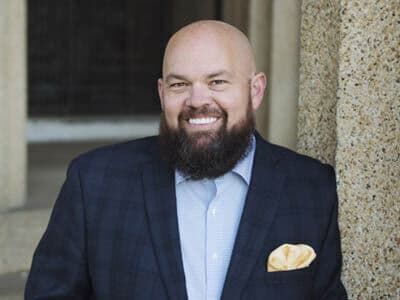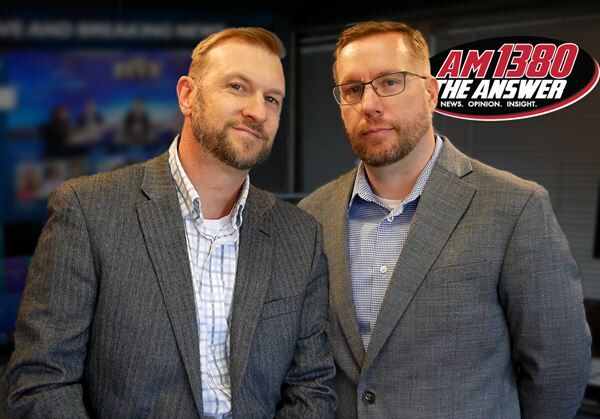The 5 Apology Languages From a Mom of 10
Homeschool

Audio By Carbonatix
Why “I’m Sorry” Isn’t Enough—and What Heals Instead
Not long ago, one of my teens looked me in the eye and said, “You never apologized.” In my head, I had. I’d explained, taken responsibility, and even tried to make it right. But the words she needed were different: “I apologize. Will you forgive me?” As soon as I said them, the tension melted.
That’s when the lights turned on for me about apology languages—and why a simple “I’m sorry” often doesn’t land.
Recently, I interviewed Dr. Jennifer Thomas, co-author of The 5 Apology Languages (with Dr. Gary Chapman). Together, they unpack why a sincere apology is more than three little words and what it takes to repair real hurt: expressing regret, accepting responsibility, making restitution, planning for change, and requesting forgiveness.
What Are the 5 Apology Languages?
Think of apology languages like love languages—each of us “hears” certain parts of an apology most clearly. Here are the five, in plain language:
- Expressing Regret — “I’m sorry.”
- Accepting Responsibility — “I was wrong.”
- Making Restitution — “How can I make this right?”
- Genuinely Repenting — “Here’s how I’ll change so this doesn’t happen again.”
- Requesting Forgiveness — “Will you forgive me?��
Tip for the heart: If you don’t know someone’s apology language, include all five concisely and sincerely—you’re far likelier to hit what matters to them.
A Marriage Story That Changed How I Apologize
In our conversation, Dr. Thomas shared the night she offered her husband, JT, a quick “I’m sorry.” He didn’t move on. When she asked what he needed to hear, he said, “I wanted you to say you were wrong.” That accepting responsibility piece made all the difference—and it eventually grew into the framework of the 5 Apology Languages.
It confirmed what I was experiencing with my daughter: sometimes “talk is cheap” until we own it and ask forgiveness—especially after repeated or serious hurts.
Why This Matters (for Homes, Churches, and Workplaces)
We asked a big question together: What would the world be like if we all apologized effectively? Picture stronger marriages, calmer homes, healthier teams, and churches where reconciliation is practiced, not rare. That’s the vision behind this work.
And here’s a practical insight from Dr. Thomas I keep using: Start sooner than later. Don’t let small offenses harden into walls. A simple, sincere “I owe you an apology—can we circle back?” can open the door to healing.
The 5-Step Apology Script (What I Actually Say)
When I realize I’ve hurt someone, this is my go-to:
- Open the door: “I owe you an apology. Can we circle back to what I said/did?”
- Regret + Responsibility: “I’m sorry. I was wrong.”
- Restitution: “How can I make this right?”
- Repentance/Change: “Here’s what I’ll do so it doesn’t happen again.”
- Request Forgiveness: “Will you forgive me?”
If I’m unsure what will matter most to them, I ask:
- “When an apology feels good to you, what makes it meaningful?”
- “When apologies fall flat, what’s usually missing?” (That answer usually reveals their primary apology language.)
Christian Perspective: Confession, Repentance, and Restoration
As a follower of Jesus, I see apologizing as part of discipleship. Scripture calls us to confess our sins, turn in repentance, and seek forgiveness. Apologizing well isn’t weakness—it’s love. It mirrors the grace of Christ, who not only forgives but restores.
When we own our wrongs and ask for forgiveness, we reflect the gospel in the most everyday ways: kitchens, minivans, staff meetings, and Sunday hallways.
FAQs
1) “What if they don’t accept my apology?”
A great apology creates the chance for forgiveness and reconciliation—but it doesn’t force it. Keep your side sincere and humble; healing takes time.
2) “Do I have to explain what happened?”
Sometimes a brief, honest explanation helps people extend grace; sometimes simpler is better. Use discernment—avoid excuses. (This aligns with the “plan for change” step.)
3) “What if I always end up apologizing?”
Healthy apologies don’t erase healthy boundaries. Own your part, but don’t accept false guilt. If patterns are destructive, seek wise counsel.
4) “How do I figure out someone’s apology language?”
Ask them—today. Or use all five elements in one, sincere apology. Many couples, families, and teams benefit from doing an apology language assessment together.
Try This Today (Free Mini-Exercise)
- Identify one strained relationship.
- Write a 3–4 sentence apology using the five steps above.
- Deliver it kindly and briefly—then listen.
Small, sincere habits like these can make your apologies far more meaningful, and open the door to restored trust. Want to know more? Listen to our chat here.
Final Encouragement
I began this post with my daughter’s brave clarity. Her words taught me what a thousand explanations couldn’t: people need apologies they can actually hear.
As Dr. Thomas puts it, when we speak in the other person’s “language,” the wall comes down and a door opens to forgiveness.
So this week, let’s go first. Lean into grace. Choose connection. And remember: God can redeem even the hardest moments and make all things new.
Want More Encouragement for Your Parenting Journey?

If you’re raising a preteen, you know how challenging these years can be. Kids are bombarded with messages that test their faith and tug at their hearts. That’s why I co-wrote Faith That Sticks with Leslie Nunnery—to give parents a practical, hope-filled guide for discipling their kids through this season.
In Faith That Sticks, we share five discipleship building blocks—prayer, Bible reading, family relationships, conversation, and service—that can strengthen your family’s walk with God. You’ll find stories, encouragement, and simple activities you can use right away to connect with your preteen on a deeper level.
👉 Click here to get your copy today.
Because at the end of the day, it’s not about raising perfect kids—it’s about raising kids who love Jesus and carry their faith into the years ahead.







